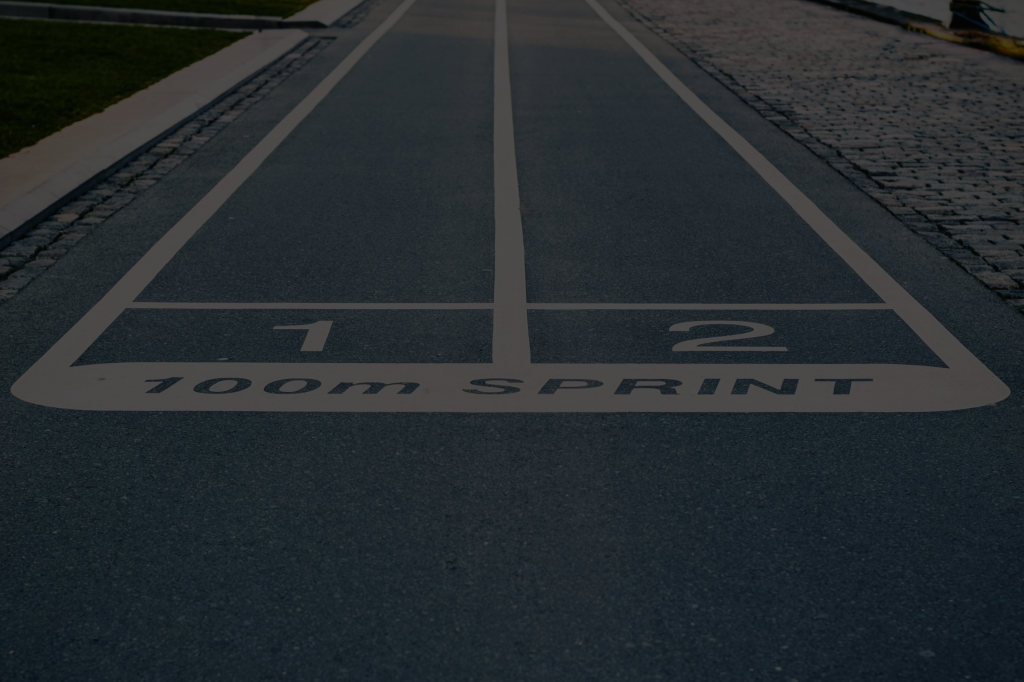On June 2, on the website of the Belarusian football club Torpedo-BelAZ, news appeared that their players would wear a new kit from the German manufacturer Puma in their upcoming match. The club referred to Puma as their technical partner on their social media (most likely the post has been edited, — author’s note). Despite Puma’s denial of cooperation with Belarusian football clubs, the brand began supplying equipment to Belarusian athlete Nedasekau in 2021, who openly supported the repressive regime in Belarus.

Puma, like many sportswear brands, claims that its strategy for sustainable development and engagement with society in the countries where Puma operates is based on respecting human rights. The same behaviour is formally expected from all its partners. However, even indirect support from Puma to athletes openly expressing their support for the Lukashenka’s regime and repression against peaceful citizens not only contradicts its commitments to human rights but also creates a false image of normalcy for an authoritarian regime and its allies, undermining the ethical and moral values of sport.
Meanwhile, repression in Belarus continues. On June 28, in Grodno, Dzmitry Kovalyonak, a former player and current sporting director of FC Neman, was detained. According to law enforcement officials, Dzmitry was arrested due to complaints from club players that he was promoting “absurd extremist ideas.” Dzmitry was released, but he was forced to record a so-called “repentance video” in which his personal correspondence was unleashed. The practice of creating and disseminating “repentance videos” is unacceptable and constitutes unlawful action, violating the right to be free from degrading treatment, freedom of expression, and the right to non-interference in private life.
On April 10, Belarusian lawyer Aliaksandr Danilevich was sentenced to 10 years of imprisonment for “assisting in public calls for actions aimed at causing harm to the national security of the Republic of Belarus.” Danilevich’s clients were Belarusian athletes Aleksandra Herasimenia and Aliaksandr Apeikin, who had previously been sentenced in absentia in Belarus to 12 years in prison. Danilevich was accused of intentionally assisting athletes by providing legal advice on international sport law. Such an accusation effectively criminalises all legal activities of lawyers in Belarus and deprives people of their right to defence, and lawyers themselves of their right to practise their profession.
Since the full-scale invasion of Russia into Ukraine, the question of allowing Russian and Belarusian athletes to various international competitions has been a pressing issue. There is no unified position on this matter, and each sports association or union decides on it locally. For example, on April 5, it was announced that the UEFA Executive Committee would not exclude Belarusian football teams from international competitions, despite the letter from 100 European parliamentarians highlighting Belarus’s involvement in Russia’s aggression and internal repression against its own citizens.
The lack of a reaction from UEFA and consequences for Belarusian football essentially serve as an example of sportwashing and can be used by the authorities as evidence of their legitimacy and recognition by the international community.
At the same time, the International Ice Hockey Federation has reassessed the possibility of allowing Belarusian and Russian national teams to participate in competitions and confirmed that such an action is not currently safe. The fate of Belarusian athletes at the 2024 Olympics in Paris remains unknown, whether they will be allowed to compete as a national team or under a neutral flag. On March 23, an interview with Belarusian cyclist Yauheni Karaliok, who supported the Belarusian authorities and the repression in the country, appeared regarding his possible participation under a neutral status. According to the athlete, all athletes should compete on equal terms, that is, as part of a national team representing their country on the international stage. Leaders of the G7 countries also call for not allowing athletes from Belarus and Russia to compete under their national flags, thereby emphasising the impact of Russian aggression on international sport.
In addition to outright bans by international sports associations, Belarusian athletes may also be subject to personal sanctions in different countries. As of May 29, Poland imposed sanctions against a number of Belarusian citizens, including at least 24 Belarusian athletes who are linked to the Lukashenka’s regime, engage in propaganda, or assist in repression in Belarus. This means that athletes will not be able to enter Polish territory and participate in competitions there. If other countries adopt a similar position, it will effectively paralyse Belarusian professional sport, particularly for those athletes who have supported the Lukashenka’s regime.

Patricia Lamanna, a Canadian football player who played for FC Minsk for three months and was dubbed a “transfer bomb,” has shared on her social media that she is leaving the club. The player had initially planned to stay with the club for a year but decided to leave much earlier. The conditions in Belarusian sports may have influenced her decision: initially, the athlete had lived on the club’s premises, but later she was asked to rent an apartment at her own expense, even though her bank cards did not work in Belarus due to sanctions, and her salary of 900 Belarusian rubles (~290 euros) was not paid in full. The player also shared that before the match against FC Bobruichanka, in which she scored four goals, she was not given food for an entire day, and she “almost lost consciousness.” Patricia’s experience shows that Belarusian football is not prepared for such transfers, and the working conditions for players are far from international standards in terms of fair and favourable labour conditions.
On May 11, 2023, the ABFF’s website reported that the ABFF Committee on Control, Discipline, and Ethics had decided to apply disciplinary measures against FC Shakhtyor, FC Energetik‐BGU Minsk, and FC Belshina for arranging fixed games: fines, point deductions for the 2023 and 2024 seasons, the revocation of awards received in the 2022 Belarusian Football Championship among the highest league teams; personal disciplinary penalties for a number of players and representatives of the clubs’ administrative/coaching staff.
In the ATN news pieces in June and August 2023, it is repeatedly mentioned that the peculiarity of these fixed games is the involvement of third parties in their arrangement.. However, as of January 22, 2023, Vladimir Niederhaus, referred to in the ATN news pieces as a “third party not affiliated with the club,” was the deputy director of the club responsible for sport matters. In one of the news items, the deputy head of the Belarusian Office of Criminal Investigations discussed instances of incentivizing FC Dinamo-Brest players, which served as the basis for disciplinary action against player Mikhail Gordeychuk by the ABFF. In this context, it appears inconsistent that the ABFF has not reacted to the statements of a Vitebsk player who claimed that the players received remuneration from a FC Shakhtyor representative but decided not to take the money and instead directed it to charity. None of the players/representatives of FC Vitebsk had been subject to disciplinary proceedings up to that point. Especially for institutions as influential on public opinion as state television.
The consequences of the legal crisis in the country cannot bypass the sphere of football: the absence of an independent football players’ union in Belarus; a selective approach to choosing individuals subjected to disciplinary measures, both by the local football federation and the courts; the use of sanctions only against third parties and the lack of a critical approach towards itself by the ABFF. These circumstances not only undermine trust in the system of arranging and conducting sports competitions in Belarus but also jeopardise the guarantees of protecting the rights and freedoms of industry participants.
At the same time, Belarusian football is entirely dependent on state funding and support. Such dependence has a negative impact on the autonomy and management of the sports sector. An example of this is the appointment of former prosecutor’s office employee Siarhei Kapytov as the chairman of the football club Dnepr-Mogilev. Kopytov himself, in his interview with the club’s press service, shared that he “did not intend to come here,” although he had been repeatedly invited “10 years ago and 5 years ago,” and he described his connection with football as follows: “Even though I played basketball,
I attended all football matches.” State influence on decision-making related to the appointment of football officials and managers raises concerns about the transparency and fairness of the Belarusian football system.
In the programme “News 24” on CTV, it was reported about a warm-up football match between parliamentarians and a “team with limited abilities.” This could have been news about an example of inclusivity in Belarusian sports, but in fact, we see the use of incorrect and discriminatory language.
The term “invalid” is inappropriate because it completely lacks a “people-first language” approach – a language that prioritises people first and foremost. The phrase “a person with limited abilities” is also incorrect and discriminatory because it creates a certain stereotype around a person (on par with “impaired”) to which the person may not relate at all. Disability is not only a medical but also a social concept, and a person’s characteristics do not define his or her personality. Therefore, we recommend using the phrase “a person with a disability.”
Recent events in the world of Belarusian sports show that the authoritarian government of Belarus chooses to use its influence and control over the sports sphere, manipulate sports and sporting events, disregard human rights, instead of supporting the principles of fair competition, respect for human rights and freedoms, sportsmanship, and fair play. The analysed violations underscore the need to hold the government of Belarus and all individuals involved accountable in accordance with international standards in this area. The situation in Belarus serves as a reminder of the importance of upholding human rights principles in all aspects of society, including sports, and the need for collective efforts to ensure respect for fundamental human rights and freedoms.
Read the full analysis on sports and human rights for April-June 2023 on our website

